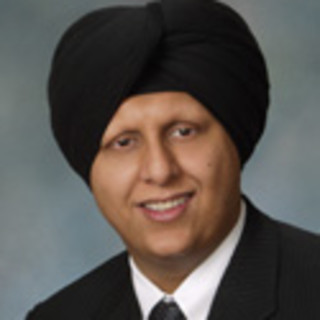Digestive Disease Week 2022 occurred in San Diego this year and was the first conference since pre-pandemic times. The meeting was enjoyable, and while the attendance wasn't as large as in prior conferences, it provided some sense of normalcy.
I had the pleasure to not only attend DDW 2022 but also moderate a session on Saturday, May 21. entitled “A deep look into improving Education for the Endoscopic Trainee, Technician, and Team.” As the program director of an advanced endoscopy fellowship, this topic speaks to me, as not only do I educate trainees but also endoscopy nurses and technicians who are integral pieces to procedural success and safety.
The session was structured to have seven talks, each slotted for eight minutes and three minutes for questions, and at the end, there was a state-of-the-art lecture.
The selection process to determine the abstracts and presentations takes hours of meetings and months of planning and is quite cumbersome. It cannot happen without a dedicated staff that works night and day to make things as smooth as possible. Moderating any session is stressful, and one of the challenges can be thinking of questions to get the ball rolling as, many times, people are shy. This is a little simpler because there are two moderators, and the work gets divided between them — unless your co-moderator’s flight gets canceled, and you are unexpectedly by yourself on a stage in front of 100 people. Yes, this has happened.
The session featured speakers from all over the world and provided key points that spoke to me.
The first point was that volume is not as important as we might think. One of the challenges we face in a procedure-dominated field like gastroenterology is determining an individual's competence. Most hospitals require a set volume (and documentation of such) to administer privileges to clinicians. For example, most places in Arizona require proof of 150 colonoscopies to grant privileges, but what we know as clinicians, is that volume does not always tell the story. A group from the Mayo Clinic led by Dr. Robert Sedlack looked at an assessment tool to rate the quality of procedures at different time frames to track progress and ultimately determine competence based on quality?
Dr. Mona Lalehzari from Northwestern University looked at using miss rates during tandem colonoscopies to determine competence. Miss rates improved over a three-year training period and provided another key thought regarding competence. Should we look at the number of procedures performed or, once again, quality?
In keeping with the theme of quality, a group from Belgium represented by Dr. David Tate looked at assessing the quality of a polypectomy via a sophisticated multi-point questionnaire and video recording system. This allowed the trainer to provide post-procedure feedback to trainees about the quality of the encounter and areas for improvement.
Dr. Theodor Voiosu and his team from Romania evaluated a scoring system that examined the difficulty of an ERCP based on a scoring scale and then assessed the complications that occurred related to the difficulty of the procedure and the competence of a trainee. The idea is that perhaps one can formally tailor the complexity of a procedure to the “readiness” of a fellow and allow for a gradual introduction to tougher cases as opposed to guessing which procedures are too complicated for an individual trainee.
Two groups looked at ways to better train a fellow in a procedure. The first was a group from Australia represented by Dr. Timothy O’Sullivan, which evaluated a program that used video training and a scoring system with a direct observation that measured the complexity of a lesion in terms of resectability. This immersive program allowed for the education of fellows and helped them toward competence. The second group from the University of Colorado, led by Dr. Elijah Mun, designed a five-day course to help first-year fellows get oriented to fellowship and learn the basics of endoscopy and gastroenterology. They evaluated the satisfaction of the fellows for this program and are looking to expand it in their institution as well as in others.
The final lecture, delivered by Dr. G.S Raju of MD Anderson, who — along with his team — looked to solve a common problem in endoscopy units through education. In essence, endoscopy technicians are hired and trained on the job. There is no formal training, meaning they are not paid similarly to those with related jobs, such as surgical technicians, and there is little opportunity for advancement. They worked with the Houston Community College to design a program that allows for formal education of the technicians, consistent education, and ultimately a pathway to promotion and further studies. This provided more efficiency for the lab and consistency for the patient, clinicians, and team.
What we learned in this session was that numbers are not important in determining competence; rather, consistent evaluation, analysis, and formal education of the fellows provided the best outcomes. In addition, educating the whole team allows for a more uniform experience, and better outcomes. I came away with the idea that we do need to improve how we educate and how we provide feedback, as this is what will make the next generations of the endoscopy and Gastroenterology team better. Our old way of just achieving numbers is no longer relevant and needs to be revamped.
Dr. Sachdev is employed by Arizona Centers for Digestive Health and has no conflicts of interest to report.
Image by Varijanta / Getty Images





